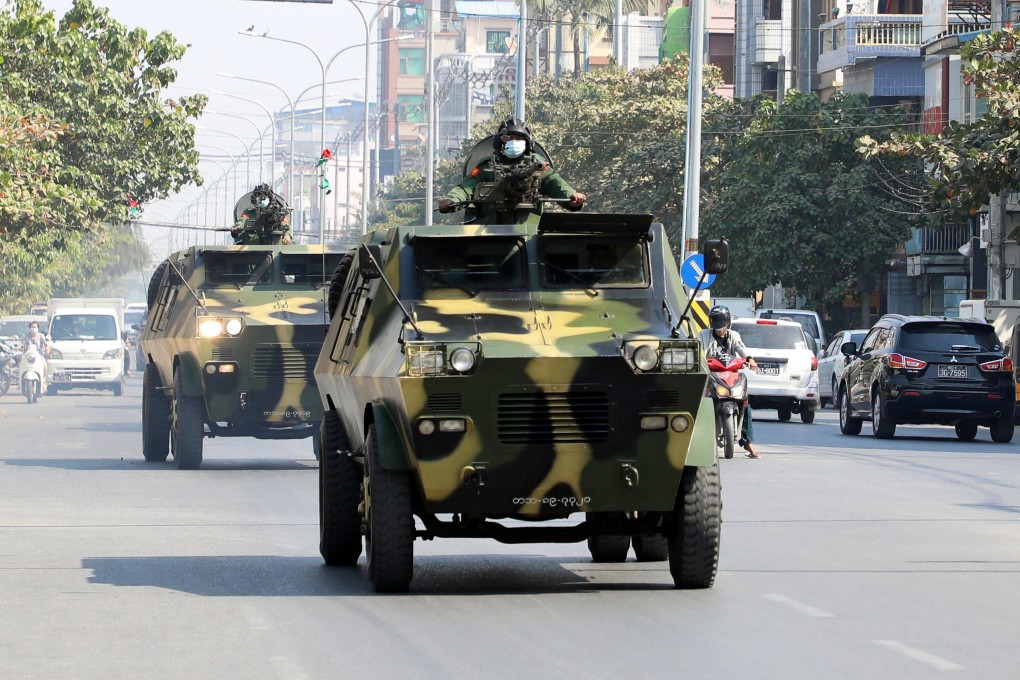Advertisement
Myanmar coup: do India and Japan have the will or the leverage to exert pressure on the military regime?
- The US has said it is consulting New Delhi and Tokyo as it forms its response to the army’s takeover, turning attention to the ties the Asian nations have with the Tatmadaw
- Analysts say Japan and India have maintained relations with both the military and the civilian government, and will seek to work with whoever is in power
Reading Time:5 minutes
Why you can trust SCMP
9

With the US State Department naming Japan and India as countries it is consulting as Washington forms its response to the Myanmar coup, attention has turned to the ties the Asian nations have with the military leadership and whether Tokyo and New Delhi have the will and leverage to exert pressure on the regime.
Washington on Tuesday condemned the coup, saying it was reviewing aid and existing sanctions on military officers in Myanmar, while Japan also described the Monday detention of elected leader Aung San Suu Kyi and other officials as a coup and urged the military to reverse its actions. Myanmar police have since filed charges against Suu Kyi and President U Win Myint, detaining the former until February 15 for investigations.
Asked on Wednesday if Japan would continue providing the millions of dollars in aid it sends to Myanmar annually, government spokesperson Katsunobu Kato said: “We will consider our response while we keep watching the situation.”
Advertisement
In contrast, India refrained from using the word “coup” and stressed that the “rule of law and the democratic process must be upheld”.
Experts agreed that Tokyo and New Delhi were keenly aware how fragile the power-sharing arrangement in Naypyidaw has been since Myanmar embarked on its democratic transition in 2011, and had continued cultivating both the civilian government and the military leadership – with this engagement taking on a renewed emphasis in recent years as a means of countering China’s rising influence in Southeast Asia.

01:24
Myanmar military coup: Yangon residents make noise to protest against army takeover
Myanmar military coup: Yangon residents make noise to protest against army takeover
This was unlike the United States, with the State Department admitting in its Tuesday briefing that existing sanctions had limited its contact with the Myanmar military, known locally as the Tatmadaw.
Advertisement
Select Voice
Select Speed
1.00x